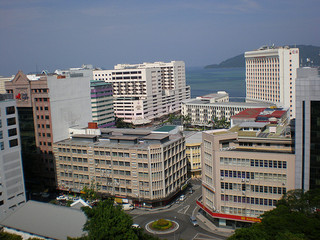 The growth of APEC’s 21 member-economies is expected to buck global trends and outpace the rest of the world in 2012 despite the uncertain environment, the Asia-Pacific Economic Cooperation said in a new report.
The growth of APEC’s 21 member-economies is expected to buck global trends and outpace the rest of the world in 2012 despite the uncertain environment, the Asia-Pacific Economic Cooperation said in a new report.
The latest “APEC Economic Trends Analysis” released by the APEC Policy Support Unit (PSU) forecasts the APEC region’s growth in 2012 to accelerate to 4.3 percent and climb further to 4.7 percent in 2013. By comparison, world growth is projected to decelerate to 3.5 percent in 2012 before rebounding to 4.1 percent in 2013.
In 2011, APEC economies’ growth moderated to 4.1 percent in 2011, down from 5.9 percent in 2010, but kept ahead of the 3.9 percent global growth rate for the year. The moderation partly reflected weaker investment and exports amid the growing euro debt crisis and disruptions to the APEC region’s supply and production chains caused by a series of natural disasters, the report said.
The GDP growth of industrialized APEC economies is expected to show resiliency with a 2.1 percent pick-up in 2012, while industrialized economies outside the region are facing the prospect of a mild recession.
Developing and emerging APEC members’ GDP growth is, meanwhile, forecast to soften to 6.3 percent in 2012. “Yet they will remain the world’s fastest growing economies, contributing more than 50 percent of global real GDP growth,” the report said.
APEC’s developing and emerging economies are furthermore predicted to regain ground in 2013 on 6.9 percent growth, though external factors remain a cause for concern for all APEC members.
“Ongoing economic uncertainty, globally, could negatively impact APEC’s consumers and businesses and deter them from spending and investing, while a re-intensification of the crisis in the Euro area could furthermore set back growth in the APEC region,” cautioned Dr. Denis Hew, PSU director.
“Given that the APEC region as a whole is a net oil importer, large and sustained increases in oil prices could also negatively impact APEC’s growth by putting upward pressure on inflation and deteriorating the region’s terms of trade,” Dr. Hew added.
The PSU, APEC’s independent research arm, regularly produces the “APEC Economic Trends Analysis,” which is based on wide-ranging data sourced from all 21 APEC member-economies as well as an array of key global institutions.
Photo: thienzieyung




